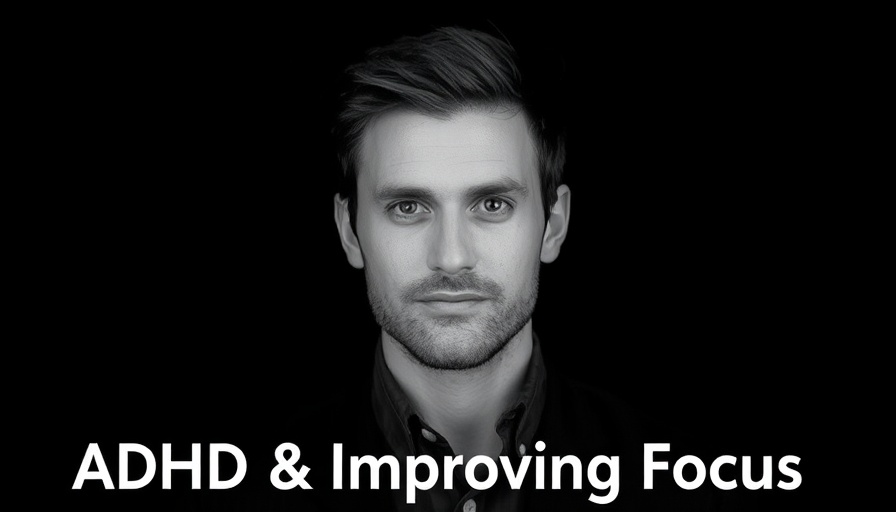
The Science Behind ADHD: Understanding Attention Deficits
Andrew Huberman's discussion on ADHD illustrates how this condition affects millions of individuals, revealing a complex interplay between focus, attention, and neurochemistry. He asserts that ADHD is not merely about a lack of attention, but rather a multifaceted challenge characterized by impulsivity and variability in focus. Essentially, ADHD manifests through not just distractions but also an intricate relationship with dopamine levels in the brain.
In the video ADHD & How Anyone Can Improve Their Focus | Huberman Lab Essentials, Andrew Huberman discusses the science of attention deficits, paving the way for an analysis of effective strategies to enhance focus and attention.
How Dopamine Influences Focus and Engagement
Dopamine, a crucial neurotransmitter, plays a pivotal role in focus and motivation. It acts like a conductor within the brain, guiding attention by activating specific neural circuits. In people with ADHD, dopaminergic pathways related to attention often malfunction, leading to difficulties in focusing on mundane tasks while paradoxically allowing for moments of hyperfocus on subjects of great personal interest.
Attention Blinks: A Unique Insight into ADHD
Huberman introduces the concept of 'attentional blinks,' a temporary block in attention experienced when one is intensely focused on something they find engaging, potentially limiting the ability to notice other stimuli. This phenomenon highlights the unique challenges faced by individuals with ADHD, who might experience more frequent attentional blinks, hence disrupting their overall focus.
Strategies for Improving Focus in ADHD
Despite the inherent challenges, individuals with ADHD can enhance their focus through specific techniques. For example, engaging in activities that stimulate dopamine release - such as exercise and certain cognitive tasks - can help. Additionally, focusing on visual targets and controlling blinking around tasks could improve attention, as Huberman's research suggests.
The Role of Medication in Managing ADHD
The conversation also touches on pharmaceutical interventions, including stimulants like Adderall and Ritalin, which aim to increase dopamine levels and facilitate better focus. Huberman notes the importance of working with qualified healthcare professionals when considering these treatments, as they come with potential risks yet can significantly improve functioning when used properly.
Minding Our Digital Habits: The Impact of Smartphones
Huberman warns about the adverse effects of excessive smartphone use on attention spans, leading to what might be termed 'smartphone-induced ADHD.' Reducing screen time is proposed as an effective strategy for anyone looking to enhance their cognitive capabilities and attention.
Nutrition and Its Impact on Attention
A crucial takeaway from Huberman's insights is the link between nutrition and cognitive function, particularly the impact of dietary components like Omega-3s on brain health. Ensuring adequate intake of nutrients might bolster focus and should be an integral part of managing ADHD effectively.
The discourse on ADHD presented in ADHD & How Anyone Can Improve Their Focus | Huberman Lab Essentials provides invaluable insights into understanding and managing this condition. With thorough strategies and knowledge, individuals can leverage this information to improve their focus and overall well-being.
 Add Row
Add Row  Add
Add 




Write A Comment